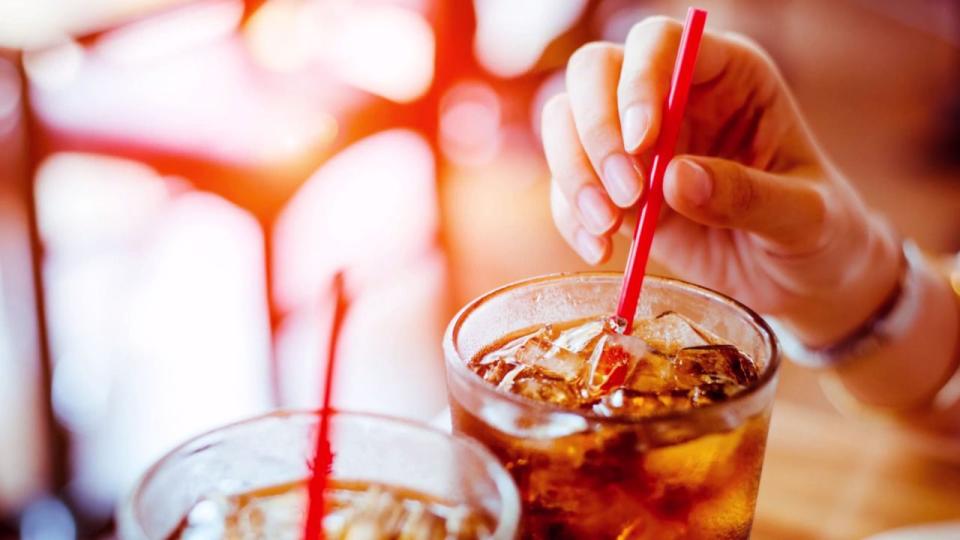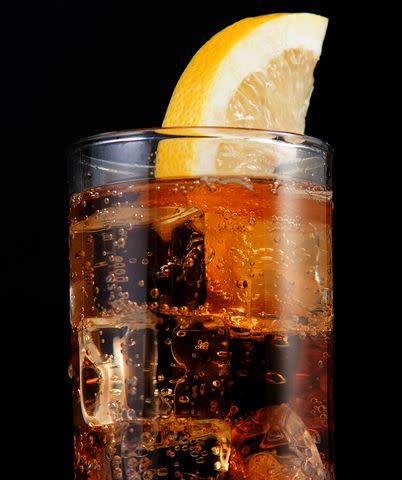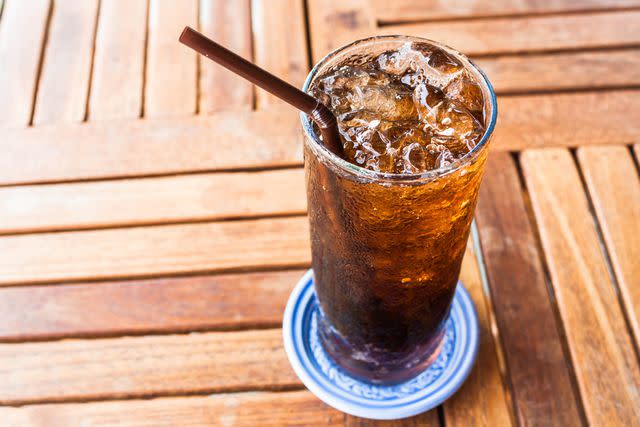Drinking Soda and Artificially Sweetened Beverages Increase Risk of Serious Heart Condition, Study Says
The study also found that those who drink unsweetened fruit juices are 8% less likely to develop atrial fibrillation

Consuming two liters or more of diet soda per week can increase your risk of developing atrial fibrillation, a new study says.
The study, published Tuesday in the journal Circulation: Arrhythmia and Electrophysiology, examined approximately 202,000 people from the United Kingdom aged 37 to 73. Researchers found that individuals who consumed more than two liters of artificially sweetened drinks, equivalent to six standard 330ml cans, were 20% more likely to develop atrial fibrillation.
Similarly, the study found that consuming other beverages with added sugars increased the risk of the disease by 10%. Meanwhile, drinking unsweetened juices, including orange juice, reduced a person's risk of atrial fibrillation by 8%.

According to the Centers for Disease Control, atrial fibrillation occurs when the heart beats too slowly, too fast or irregularly. Other symptoms of the condition include lightheadedness, extreme fatigue, shortness of breath and chest pain. Atrial fibrillation is also the leading cause of stroke in the United States.
The CDC estimates that by 2023, 12.1 million people in the United States will have AFib. However, while this study suggests a correlation between drinking diet soda and developing atrial fibrillation, another study from 2017 found that people with European ancestry have a 22% risk of inheriting the condition.
“Our study’s findings cannot definitively conclude that one beverage poses more health risk than another due to the complexity of our diets and because some people may drink more than one type of beverage,” said lead study author Dr. Ningjian Wang, a professor at the Shanghai Ninth People’s Hospital and Shanghai Jiao Tong University School of Medicine in Shanghai, China.
“However, based on these findings, we recommend that people reduce or even avoid artificially sweetened and sugar-sweetened beverages whenever possible,” Wang continued in the statement. “Do not take it for granted that drinking low-sugar and low-calorie artificially sweetened beverages is healthy, it may pose potential health risks.”
Never miss a story — sign up for PEOPLE's free daily newsletter to stay up-to-date on the best of what PEOPLE has to offer, from celebrity news to compelling human interest stories.
Related: J.J. Watt Reveals He Had Heart 'Shocked Back Into Rhythm' Thursday, Says 'I'm Playing Today'

Penny Kris-Etherton, a professor emeritus of nutritional sciences at Pennsylvania State University, added that this is the first study to report an association between no- and low-calorie sweeteners and also sugar-sweetened beverages and increased risk of atrial fibrillation.
“We still need more research on these beverages to confirm these findings and to fully understand all the health consequences on heart disease and other health conditions,” Etherton, who is also an American Heart Association nutrition committee member, added in a press release. (She did not participate in the research of the study.)
“In the meantime, water is the best choice, and, based on this study, no- and low-calorie sweetened beverages should be limited or avoided,” she continued.
For more People news, make sure to sign up for our newsletter!
Read the original article on People.


